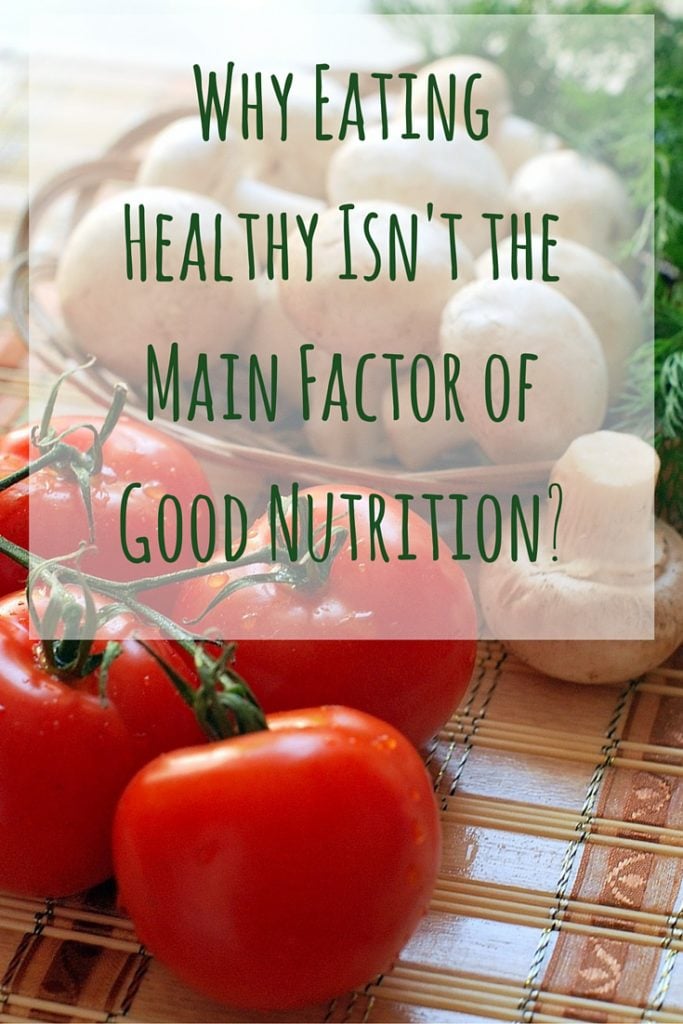Think You’re Eating Healthy?
You do your best to eat healthily, but how healthy are you really eating? Have you been prescribing archaic or outdated nutrition norms? Find out some great tips for eating healthy to help shape your nutrition mindset!
Know everything about eating healthy?
Eating healthy foods is an important aspect of your life. When you’re browsing through health and lifestyle magazines or websites, you usually come across articles that state healthy eating is an integral part of good nutrition and lifestyle. However, that isn’t necessarily accurate.
Healthy eating isn’t a key factor of good nutrition. You are probably wondering how this is possible…
The primary purpose of this article is to demonstrate why eating healthy isn’t the primary aspect of good nutrition.
Have fruits and vegetables become less nutritious?
It is widely assumed that good nutrition involves a high intake of fruits and vegetables.

However, that doesn’t mean you should eat fruits and vegetables only.
In fact, your body requires a variety of nutrients that can be obtained from various food groups. For example, the Journal of the American College of Nutrition study conducted by Donald Davis of the University of Texas discovered a significant decline in protein, phosphorous, calcium, iron, Vitamin B2, and Vitamin C over the past half-century.
This decline in the nutritional value of veggies occurs due to increasing efforts to breed new varieties of crops and produce to provide greater yield, pest resistance, and climate adaptability.
Cutting back on fat isn’t enough to help your heart
Besides assuming that healthy eating includes a high intake of fruits and vegetables, people also make another common mistake assuming that healthy eating habits also involve cutting back on fat. Avoiding fat intake is linked to heart health, but that isn’t entirely correct. You should bear in mind that not all fats are created equal.
Dr. Dariush Mozaffarian of the Tufts Friedman School of Nutrition and Science Policy conducted a study whose results were published in the Journal of American Heart Association. In this study, Dr. Mozaffarian discovered that eating too little vegetable oils contributes to more heat-related deaths than eating saturated fats.
These findings also suggest that to have the biggest impact on heart disease, people should focus more on increasing the intake of healthy fats. According to the author of the study, although there are certain benefits of reducing intake of animal fats it’s important to think not just about reducing consumption of animal fats but increasing good things (fats).
It’s not what you eat, but how much
Most people opt for a healthy diet when they want to lose weight, or they suffer from some disease or condition, and their doctor recommends eating various anti-inflammatory foods. But, the beneficial effects of your nutrition don’t depend on what you eat, but how much you eat.
For instance, the American Journal of Clinical Nutrition study included several hundreds of overweight people and divided them into different groups where they had to follow different dietary regimens for six months. Each participant’s plan was designed to cut 750 calories a day from their current diet.
Results of this study show that limiting the intake of various foods regardless of the diet plan works more efficiently than opting for the intake of specific foods or diet plans. The authors of the study concluded that choosing a certain diet plan with a certain amount of calories is more effective than basing your eating habits on particular fads.
However, only 9% of Americans know how to accurately measure their calorie intakes.
Most people assume certain food groups as healthy and others as unhealthy and eliminate intake of those food groups thus depriving their body of healthy nutrients and vitamins. Eating healthy isn’t enough. Good nutrition requires a unique balance of nutrients.
What nutrients to eat?
Balancing different nutrients is the key factor of good nutrition, and it matters more than the food you eat. Since nutrition is an important aspect of a healthy lifestyle below you can see what nutrients you should include in your diet and make sure you eat them on a daily basis as part of optimal nutrition (these are just recommendations – consult your physician for your personal breakdown):
- Carbohydrates – they’re the source of energy your body needs. According to the Food and Nutrition Board, you should get between 45% and 65% of daily calories from carbs. Therefore, if you follow a 2000-calorie diet, you should eat between 225 and 325 grams of carbs on a daily basis.
- Fat – insulates your body and maintains temperature. Fat intake should account for 25% to 35% of daily calories.
- Protein – keeps your immune system strong and is essential for overall health and well-being. Women should consume 46g of proteins a day while men should go for 56 grams.
- Vitamins – the recommended daily value of each vitamin differs.
- Minerals – just like with vitamins, recommended daily value varies. Remember, good nutrition requires the intake of various vitamins and minerals on a daily basis.
Wrap-Up
We’ve always believed that good nutrition requires the elimination of unhealthy foods and eating fruits and vegetables only.
However, healthy eating isn’t as important as the number of foods you eat i.e. to get the best out of the foods you eat you have to pay attention to the balance of essential nutrients.
Ideally, good nutrition includes a variety of foods it doesn’t limit itself to specific food groups only.
Always make sure you eat in moderation regardless of what you eat. For example, just because you’re eating vegetables doesn’t mean you should eat more than your body needs.
- How Does Peppermint Tea Help Boost Your Memory? - February 20, 2019
- Want a Long Life? Not Too Heavy, Not Too Thin - August 6, 2016
- The Expert’s 6 Most Important Healthy Lifestyle Tips - June 27, 2016